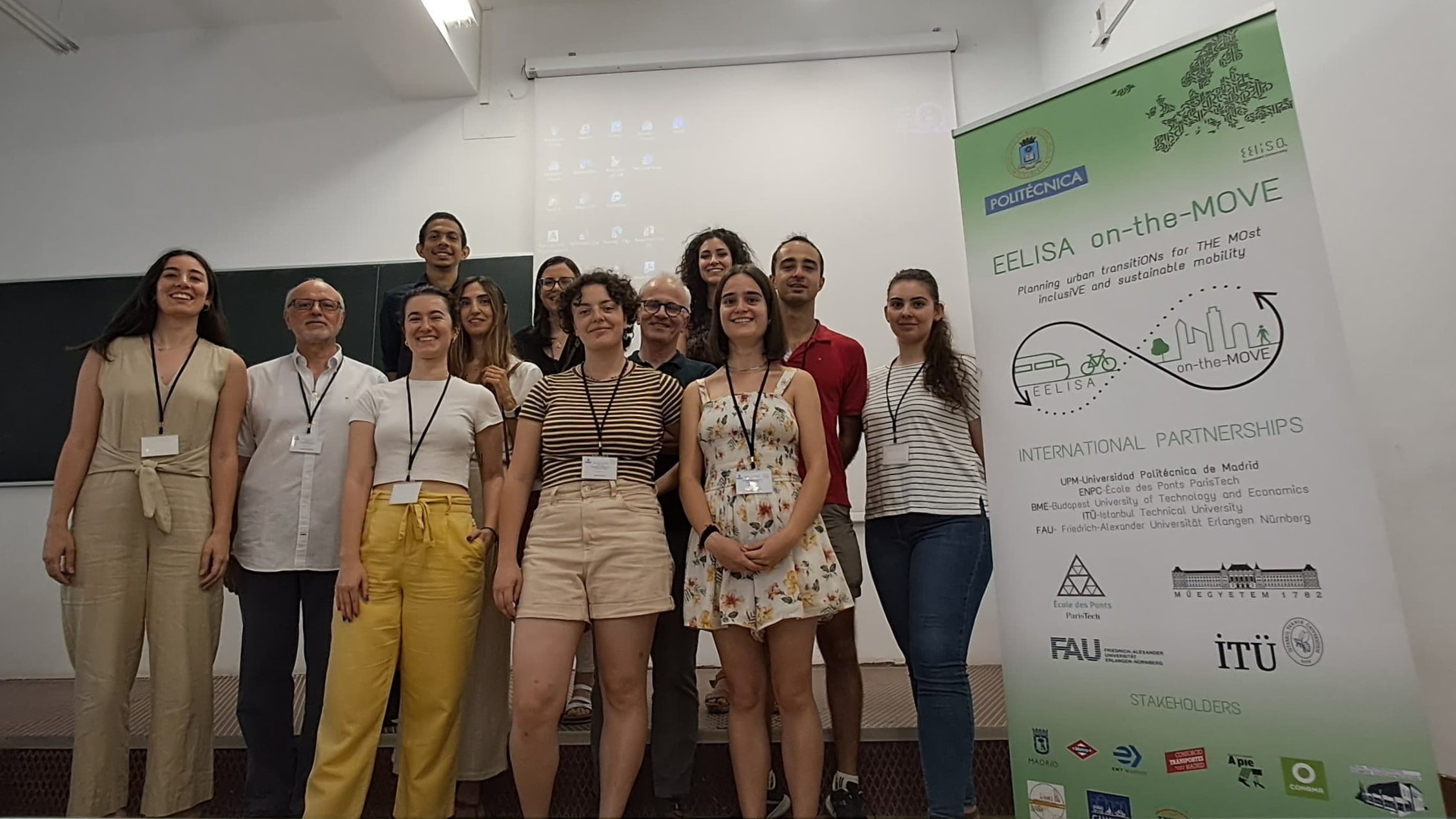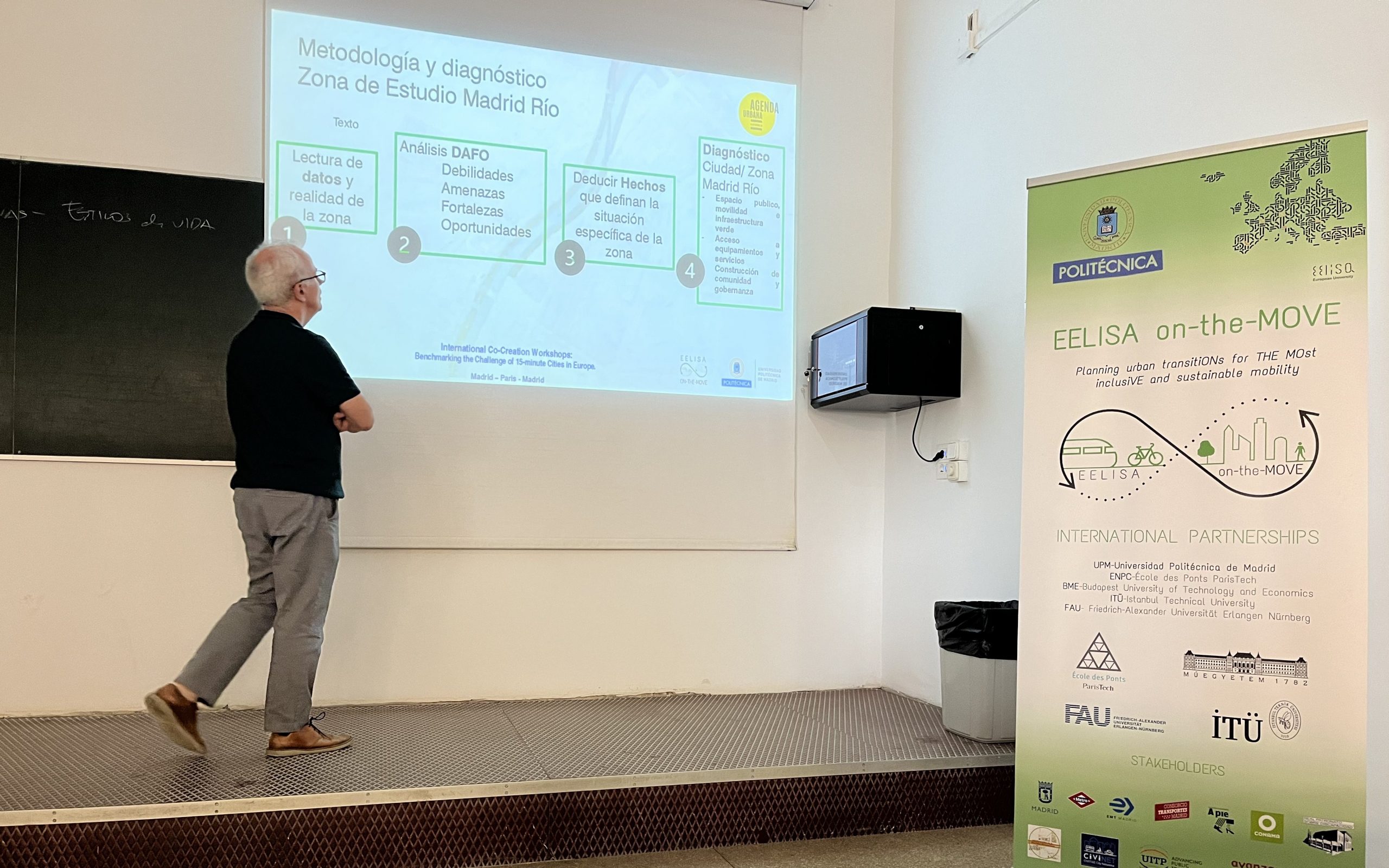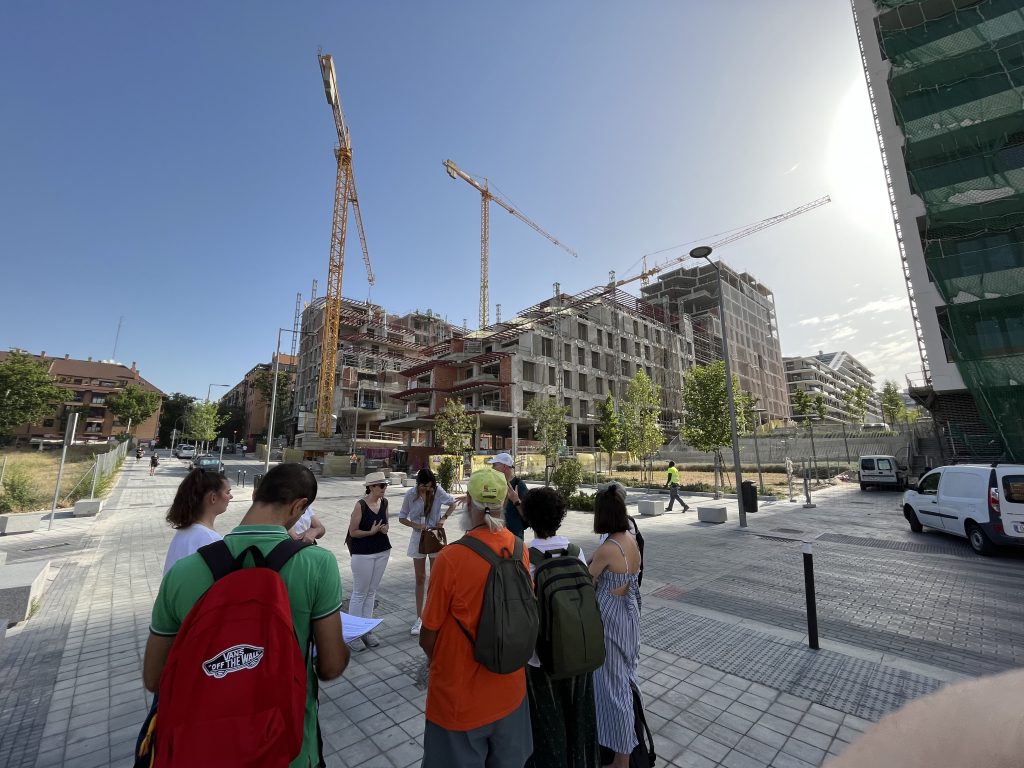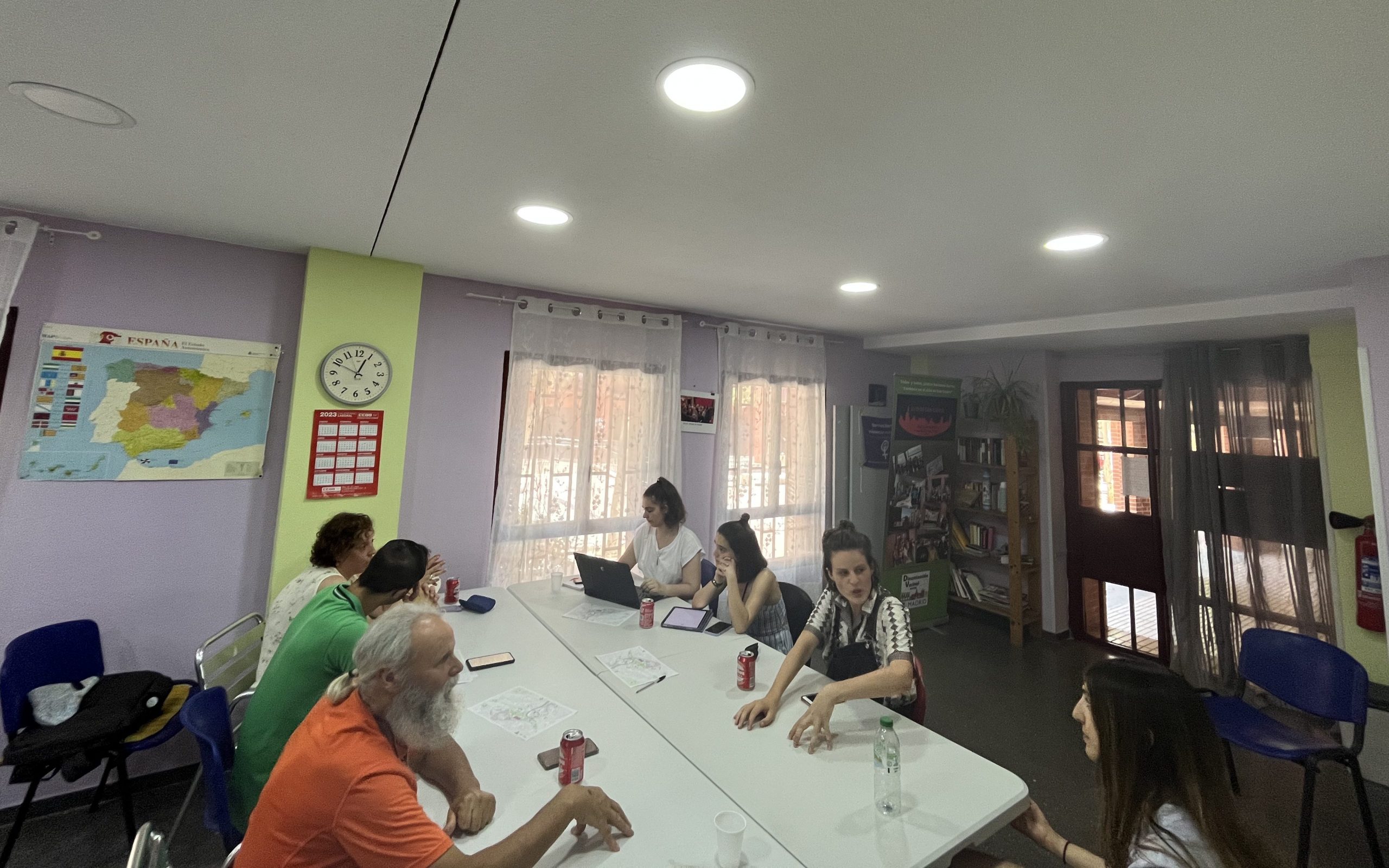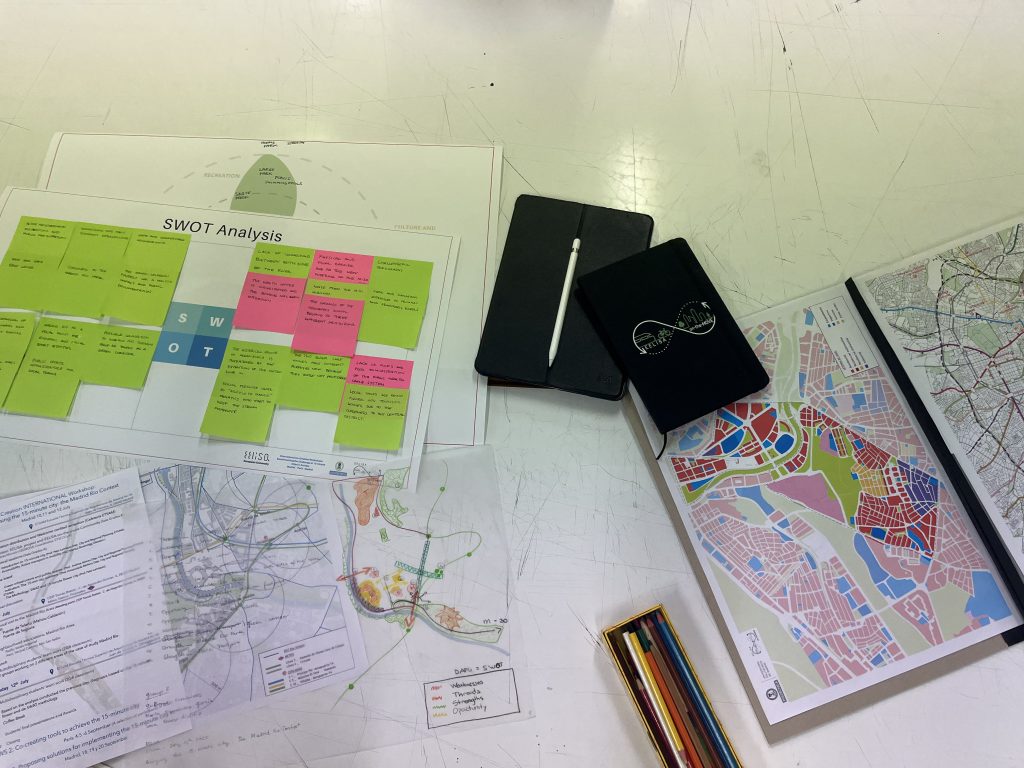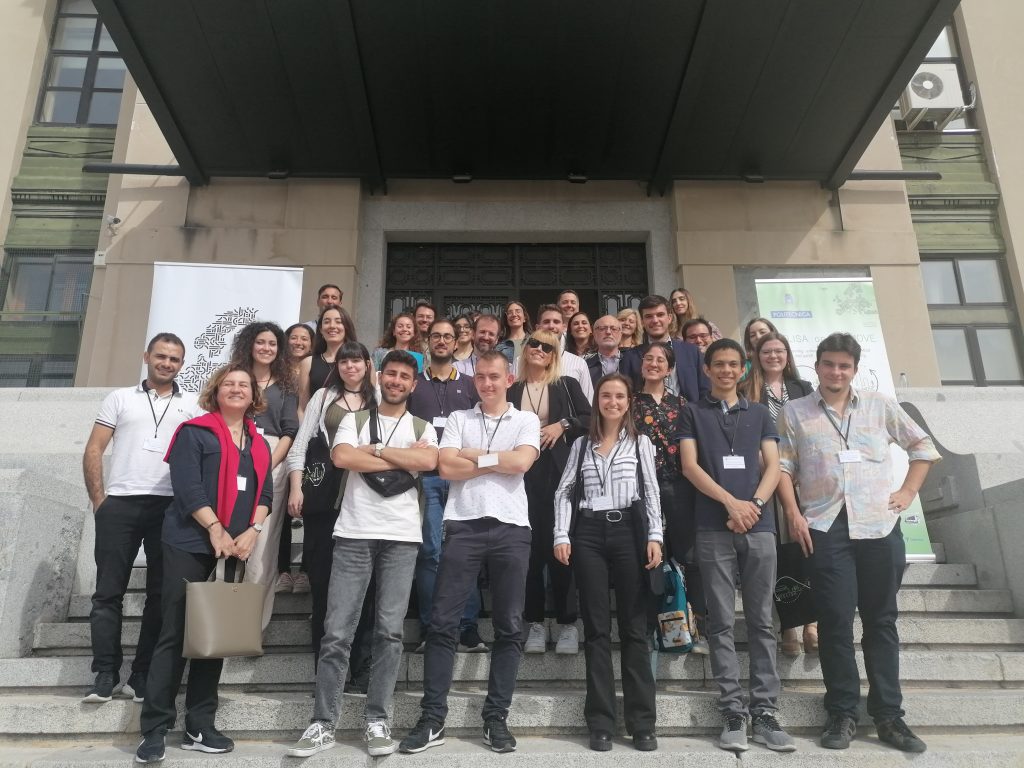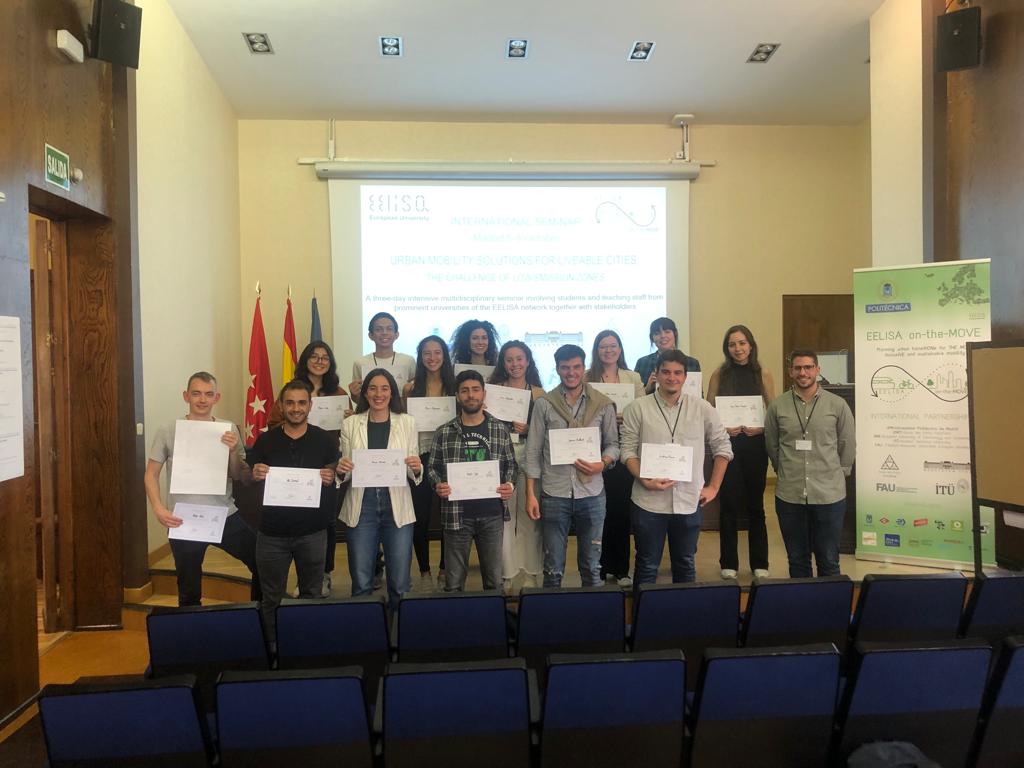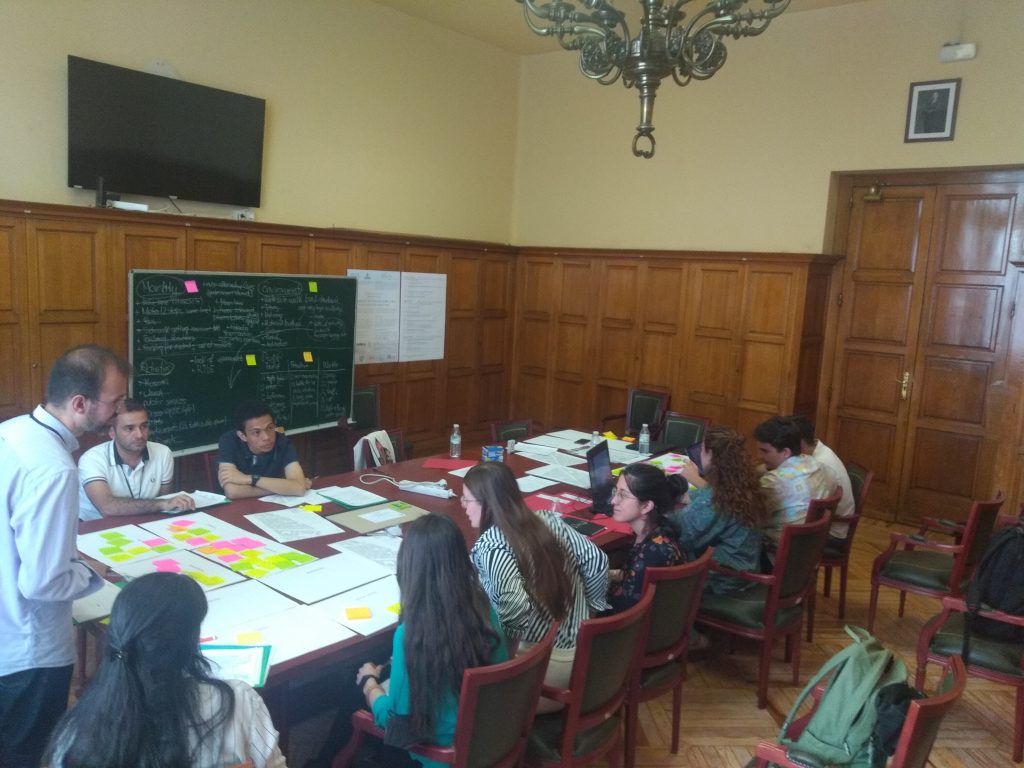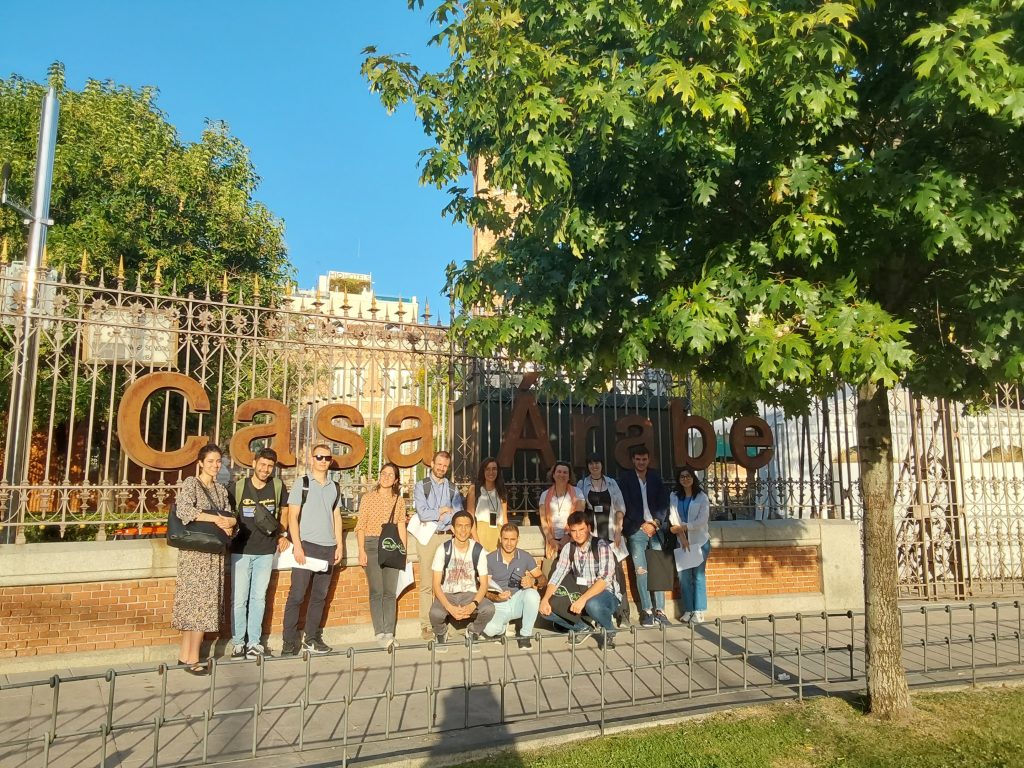Madrid, 19-21 September 2024
The academic activity, organized by the EELISA challenges “Use of Virtual Reality as a Tool for Collaborative Planning” and “Urban i-HUBS: Towards More Equitable and Efficient Intermodal Access,” both coordinated by professors from the EELISA On-the-Move community and funded by the Ministry of Science, Innovation, and Universities, was held at the UPM.
The event brought together students, experts from various universities, and companies to explore the use of digital tools in urban mobility planning. Among the participants were 18 students from UPM (from the ETSIMFMN, ETSAM, and ETSICCP schools), one student from Istanbul Technical University, and one student from Budapest University of Technology and Economics.
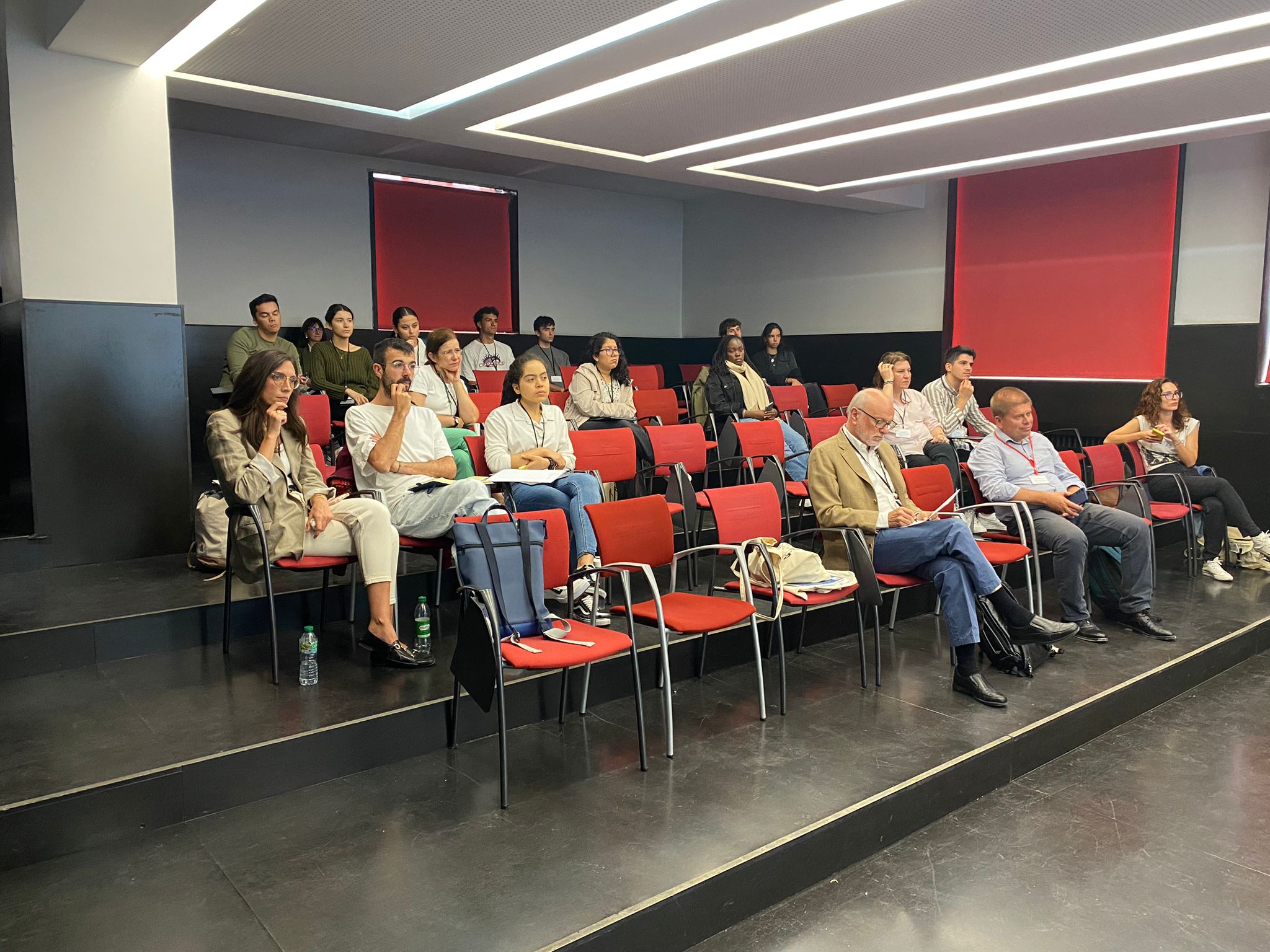
Thursday 19th
The event began on the afternoon of Thursday, September 19, with the session titled “Digitalization and Visualization Tools.” After an opening by Professor Andrés Monzón, coordinator of EEMOVE-UPM, Professor Belén Martín (UPM) presented a summary of the academic activities she coordinated in the EELISA challenge “Use of Virtual Reality as a Tool for Collaborative Planning” during the 2023/2024 academic year and those planned for the 2024/2025 academic year, developed in collaboration with ESRI. These activities explored the applications of virtual reality and digital twins in sustainable planning within the bachelor’s degree programs in Civil and Territorial Engineering, Forest Engineering, and Environmental Engineering at UPM. Subsequently, a panel of experts, moderated by Professor Martín, discussed practical applications of these technologies in urban mobility and planning. Participants included Pablo Nistal, engineer at the company INGECID; Luis Íñigo Lladró, geographer at ESRI; and Professor Julio Soria (UPM), principal investigator of the VIR2ALL project (https://vir2all.transyt-projects.com/).
One of the most interactive activities was the virtual reality workshop led by Professor Amor Ariza (UPM) and virtual reality specialist architect Manuel Pérez (VIR2ALL Lab – UPM). In this workshop, students and academics from both UPM and other international institutions, such as Dr. Florin Nemtanu from Politehnica University of Bucharest and Professor Hande Demirel from Istanbul Technical University, collaborated in teams to experience virtual reality scenarios developed within the VIR2ALL research project.
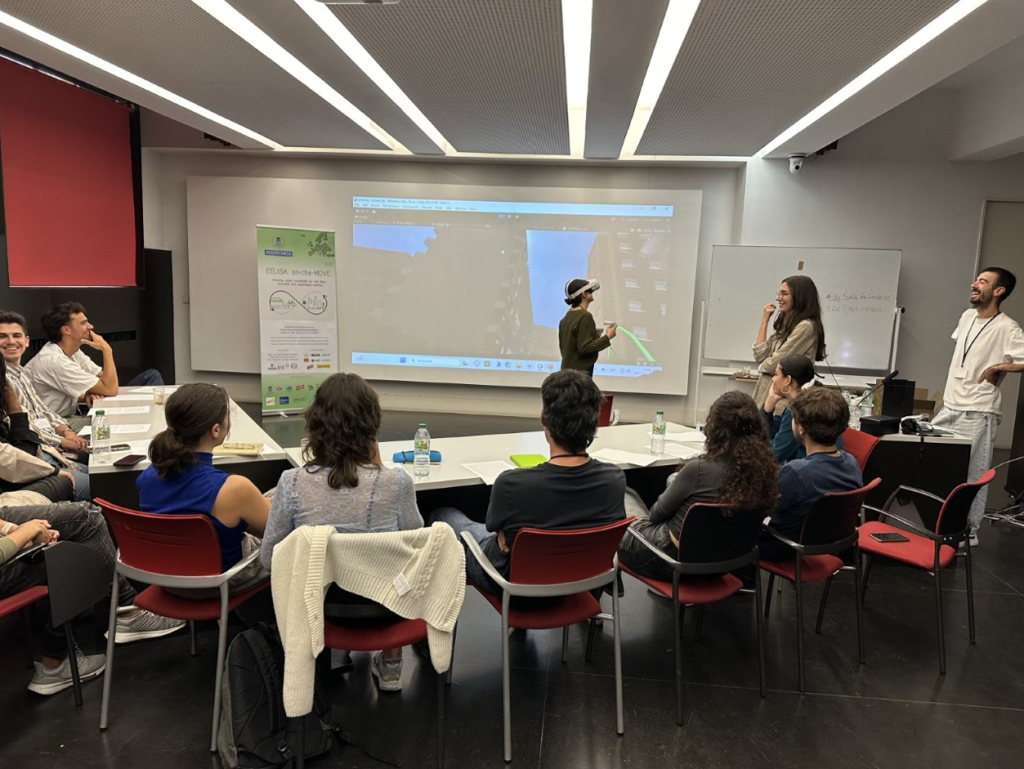
Friday 20th
On Friday, September 20, activities focused on intermodality and active mobility. In the morning, participants attended presentations on digital tools to improve urban and mobility planning, with keynote presentations by Allison Fernández from UPM-TRANSyT, as well as Dr. Nemtanu and Professor Demirel.
The “Step Counter Challenge” activity, a joint initiative between the EELISA On-the-Move and Health in the City communities, was later replicated, although in a somewhat shorter format. This activity had already been held on June 13, 2024 (https://blogs.upm.es/eemove/2024/06/17/step-counter-challenge/). In this second edition, which allowed our colleagues from Istanbul and Bucharest to replicate it at their respective universities, activity trackers were distributed as part of a walking challenge to promote active mobility in the city. The initiative was presented by Professors Ester Higueras and Andrea Alonso (UPM) and student Lucía Magaña (ETSAM-UPM).
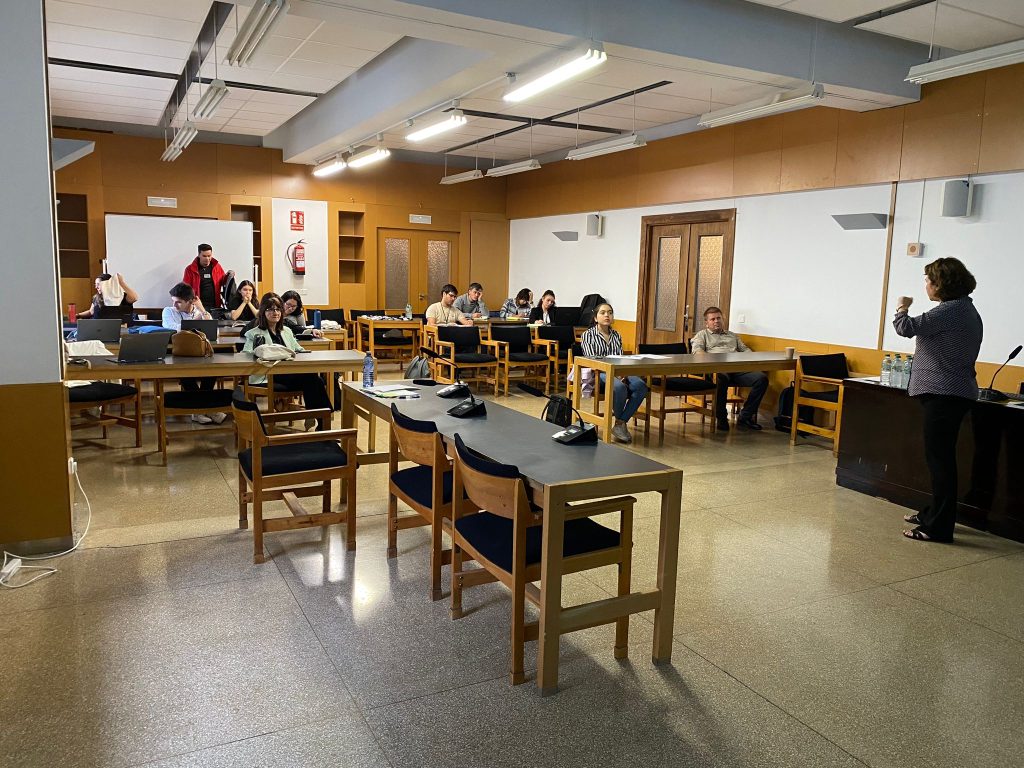
After lunch, the afternoon was dedicated to promoting the EELISA challenge on urban i-HUBS, with the participation of Professor Andrea Alonso (UPM) and UPM students Juan Notivoli, Carmen Diéguez, and Alba Ramírez from ETSAM-UPM. The day concluded with a technical visit to the Moncloa interchange station, where multidisciplinary teams of students analyzed the challenges of the station, guided by Professor Andrea Alonso (UPM).
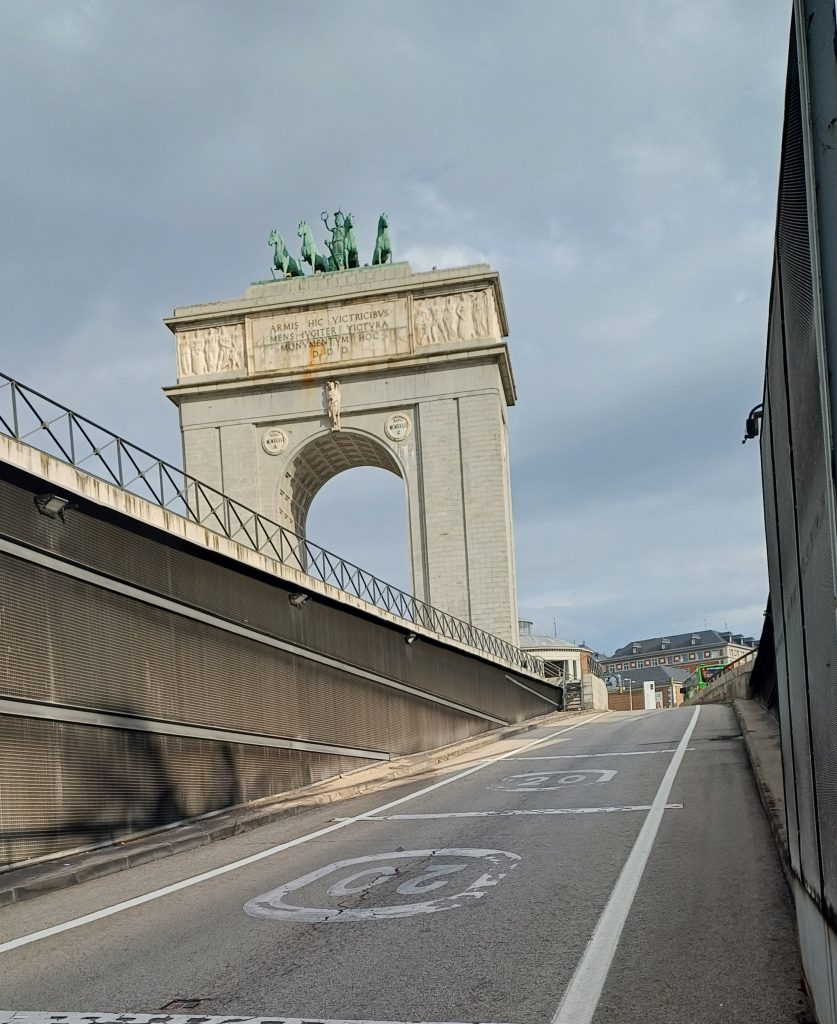
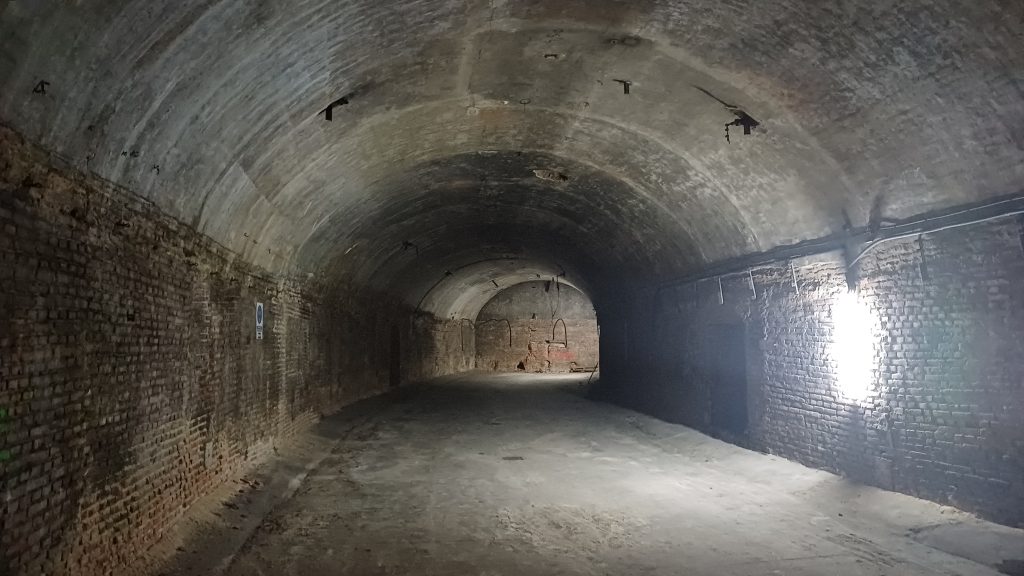
Saturday 21st
On Saturday, September 21, the event concluded with a session in which three teams of students, guided by academics from EELISA On-the-Move, worked on applying digital tools and virtual reality to propose solutions to improve the Moncloa station. Coordinated by PhD students Alba Ramírez and Allison Fernández from UPM, and Koray Aksu from Istanbul Technical University, the students presented their solutions to a jury composed of Dr. Emilio Ortega, Dr. Florin Nemtanu, and Professor Hande Demirel. The closing ceremony included the presentation of awards to the outstanding teams.
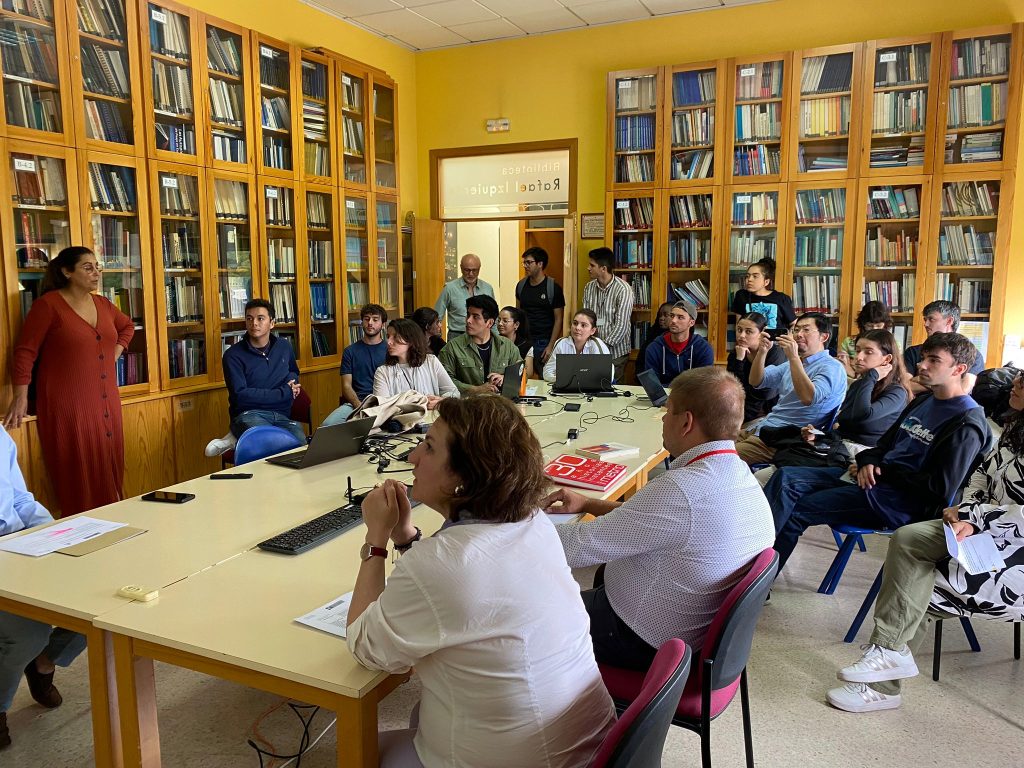
This academic event provided a rich platform for international collaboration and the exchange of innovative ideas in the field of urban mobility, deepening the importance and application of digital tools for solving current challenges in cities. The active participation of students from different universities and disciplines was key to the success of the activity.
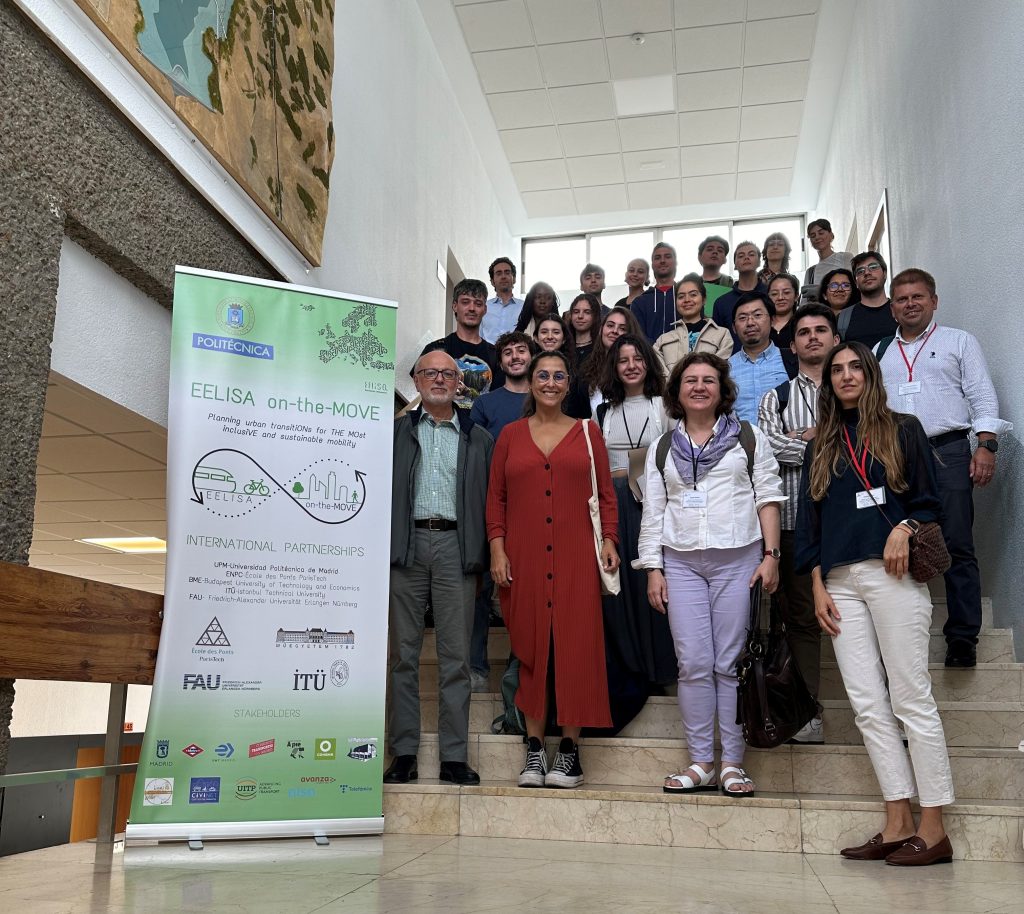
Seminar Presentations and Schedule
Schedule-Virtual Twins for improving intermodality
2024_09_19_B_Martín_EELISA_Virtual Reality and Digital Twins_CHALLENGE
2024_09_19_P_Nistal_INGECID – BIM,DigitalTwins and GenerativeDesign
2024_09_20_A_Alonso_EELISA_STEP_CHALLENGE
2024_09_20_A_Alonso_EEMOVE_Urban-iHUBS
2024_09_20_A_Ramírez_Universal Accessibility (UA) in multimodal stations
2024_09_20_Allison_Fernandez_METROPOLIS
2024_09_20_Allison_Fernandez_MONCLOA_INTERCHANGE
2024_09_20_C_Diéguez__EEMOVE_Urban-iHUBS
2024_09_20_E_Higueras_Delivering healthier cities-EELISA
2024_09_20_L_Magaña_EELISA_STEP_CHALLENGE
2024_09_21_Group 1_EEMOVE Workshop
